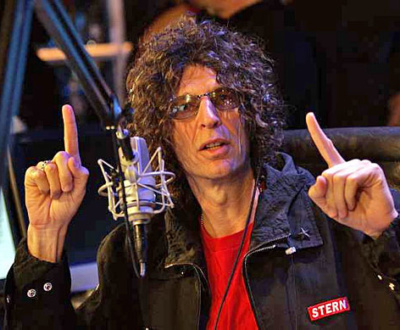Making Your Own Marketplace: Return on Ideas as Investments
- May 7, 2014
- Content Marketing, Marketing
ROI, Return on Investment, “The Bottom Line,” the driving force behind business, and always at the forefront of any strategy or model. The world of business and the world of digital marketing overlap, but are far from identical. The business world is founded upon financial investments and financial returns, the world of digital marketing includes the inherent social factor which renders the traditional one-size-fits-all ROI approach a bit moot.
In a world of ever evolving marketplaces, the ROI is still The Bottom Line; however, as the investment continues to shift from quantitative performance indicators, the return does as well. The question becomes: what is my ROI?
First, we need to re-evaluate what the original investment itself is in a digital society, economy, and marketplace. Challenge yourself to reconsider the ROI as no longer a “Return on Investment,” so much as it is a Return on Ideas – the idea itself.
The digital marketplace has reminded the world of marketing that America is fundamentally a marketplace of ideas. That’s what makes it what it, that’s what allows for the ability to freely pursue enterprise in a creative space. The beauty is that you set your value; you set your worth to your audience, investors, constituents, and consumers.
Arguably one of the most successful personal brands in music entertainment, Lady GaGa, gave the keynote at this year’s SxSW Interactive Music Festival, and highlighted three examples of how to re-evaluate true ROI in the new space, and why your niche market matters – regardless of the dominant industry trends, and race to the top of the mass marketplace.
The first touches on the idea as the investment, for GaGa: the idea is the music, the songs, not necessarily the profit or chart position – and despite the surge of social media impact on new musicians, success and longevity depend on the investment in your core product first – and brand perception later:
“I know… I love songs. You know, there’s nothing like writing songs, really…” – and we were just talking about songs – and that’s the people that you should be signing, and that’s the people you should be promoting: people who write songs. Songwriters, people who need to, have to – not somebody who has a bunch of followers on Twitter. The only reason that it mattered how many followers I had on Twitter, was because I had a real relationship with my fans – a real, true one. A real genuine friendship, I really understand them, and they understand me.
Here, the traditional ROI would look at the quantitative stats of followers as the key metric – but in actuality, the value of the numbers is dependent upon the engagement between the fans and the idea, and is strengthened by the authenticity of the connection with a human being. The focus on quantitative investments and returns detaches brands from the human element of interaction, social investment and return; and that interaction is then lost and forgotten in a race to figure out which magic metric the brand is missing – seize the opportunity to recapture the lost connection with genuine engagement and content.
When you work from “ROI” in the quantitative sense, you’re working from an antiquated foundation – if we’re focusing on financial or numerical returns from customer engagement investment – of course the apparent return is never going to be ideal. You’re never going to have outstanding returns on integrated approaches in the digital space, because it is not streamlined to evaluate varied metrics yet – nor is it bound by strictly quantitative investments; to that end, invest with ideas – “don’t sell out to this business, sell in.” Which highlights the second example: Don’t sell out on your message to appeal to the masses if it means abandoning your brand, sell in to your niche community and cultivate brand equity:
See in the business they’re always trying to widen your demographic: “Oh you already have them, why don’t you go after them now… So you can have more – we need to have more.” I don’t need more I have my amazing fans – I love you, I don’t need anybody else. If you want to come and hang out with us, and come to the party, you’re all invited; but I don’t need need need, more more more, and I certainly wouldn’t just abandon my morals and my core values to what … to be more famous?
Fundamentally, the idea is your content; the idea is your brand. Plan strategic approaches that center on the idea as the asset, and the investments as time and effort allotted to specific content or campaign approaches. When evaluating the success or less-than of a campaign, keep in mind what the actual investment was (an hour of brainstorming, copywriting, etc.), then assess the return accordingly (how much time was spent by viewers watching, engaging, responding to the content or engaging with the campaign).
Eventually, there will be points of conflict when original goals are not met – or quantitative and qualitative goals are not aligned. Numbers will always matter somewhere, and when staying true to your message means shying away from monetary gain, you will have to decide which is more important in the long-term and what investment is worth the optimal return. Worldwide success yields cosmic expectations for the next quarter; despite popular belief, limits do exist, and the bigger you get the more blurred those limitations appear – don’t forget when and that you can say no, if only for the sake of your fans and your brand.
At some point you have to look at those people who believe in you and say … “What I have to say matters more to me than the money does.” And I know that it’s fun being on top, and I know it’s fun having everybody wish they were number one, but … having people envy you, really isn’t fun at all; having people feel a part of you, and feel one with you… that’s the greatest feeling that there is.
As long as you continue to put out content that promotes your core brand ideas and ideals, your return – no matter how apparently minor or small the quantities of responding audiences – is positioned that much better for those who did connect to do so with items that are directly relevant to your brand’s unique message.
This is author biographical info, that can be used to tell more about you, your iterests, background and experience. You can change it on Admin > Users > Your Profile > Biographical Info page."
About us and this blog
We are a digital marketing company with a focus on helping our customers achieve great results across several key areas.
Request a free quote
We offer professional SEO services that help websites increase their organic search score drastically in order to compete for the highest rankings even when it comes to highly competitive keywords.
Subscribe to our newsletter!
More from our blog
See all postsRecent Posts
- 4 Reasons You Should Be A/B Testing Your Email Marketing Campaigns May 15, 2018
- The Secret Strategy for Using Surveys to Boost Conversions (It’s Not What You Think) February 2, 2017
- Advanced Brand Positioning Strategies December 31, 2016




